15 TV Scenes So Controversial They’ll Never Be Forgotten
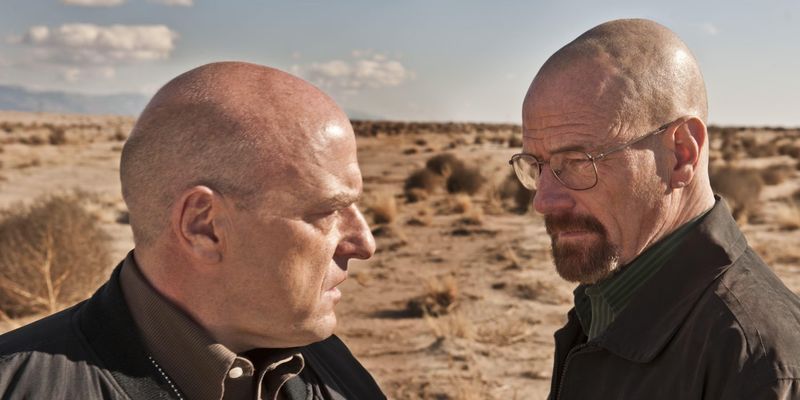
Television has a way of sneaking into our living rooms and making us laugh, cry, and sometimes yell at the screen. But every so often, a show crosses a line that sparks outrage, heated debates, and sometimes even changes the way TV is made forever. These are the moments that left fans divided, networks scrambling, and critics buzzing.
1. Game of Thrones – Red Wedding (Season 3)
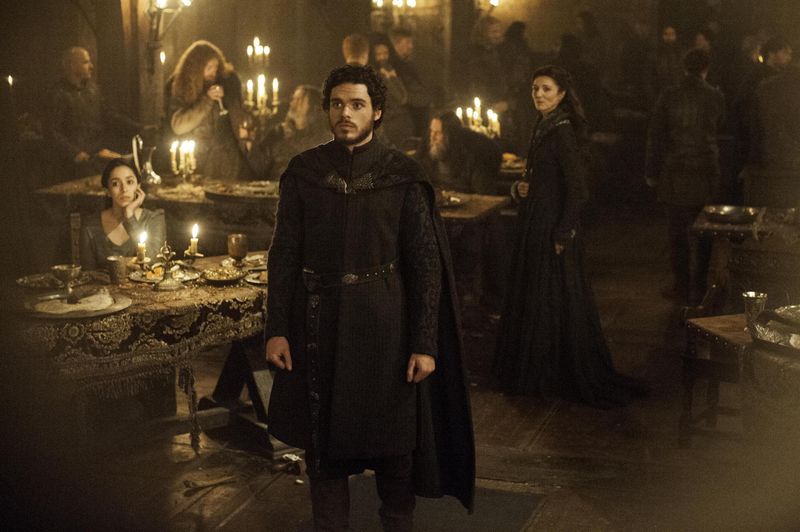
The infamous wedding massacre still sends shivers down the spines of fans. What was supposed to be a celebration turned into a bloody betrayal that wiped out several beloved characters in one brutal swoop.
Audiences weren’t just shocked—they were traumatized. Social media exploded with reactions, with some fans swearing off the show entirely. Critics praised the bold storytelling, but many questioned whether the show had gone too far in its pursuit of shock value.
Love it or hate it, the Red Wedding proved Game of Thrones wasn’t afraid to kill off fan favorites. It raised the stakes in a way television had rarely seen before, cementing itself as one of the most jaw-dropping moments in TV history.
2. The Sopranos – Final Scene Cut to Black
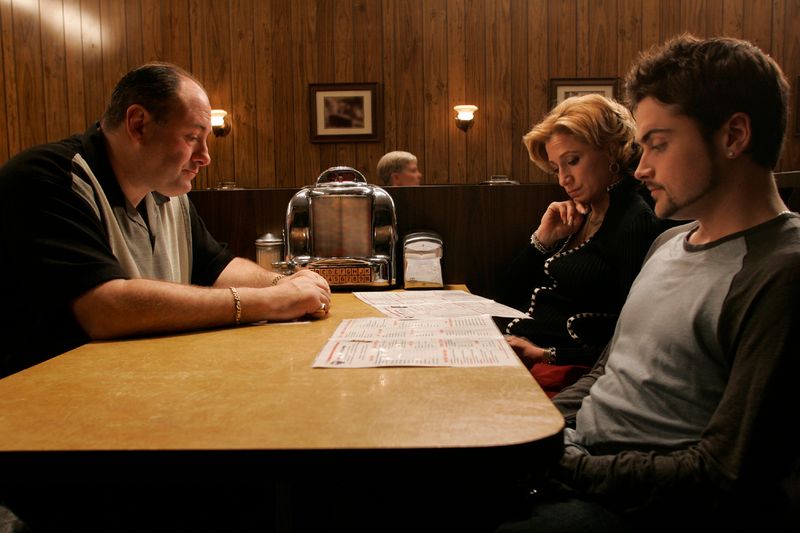
Fans were left stunned when Tony Soprano’s story ended not with a bang, but with a sudden cut to black. The abrupt silence and ambiguity had millions of viewers checking their cable boxes, convinced something had gone wrong.
Instead of providing closure, the finale left audiences to debate Tony’s fate. Was he killed? Did he live on? The lack of answers divided fans and critics alike, with some praising its brilliance and others calling it a cop-out.
The controversy endures to this day, sparking endless think-pieces and fan theories. Whether you saw it as genius or infuriating, that cut to black secured The Sopranos a permanent place in the conversation about great (and polarizing) TV endings.
3. Dallas – “Who Shot J.R.?” (1980)
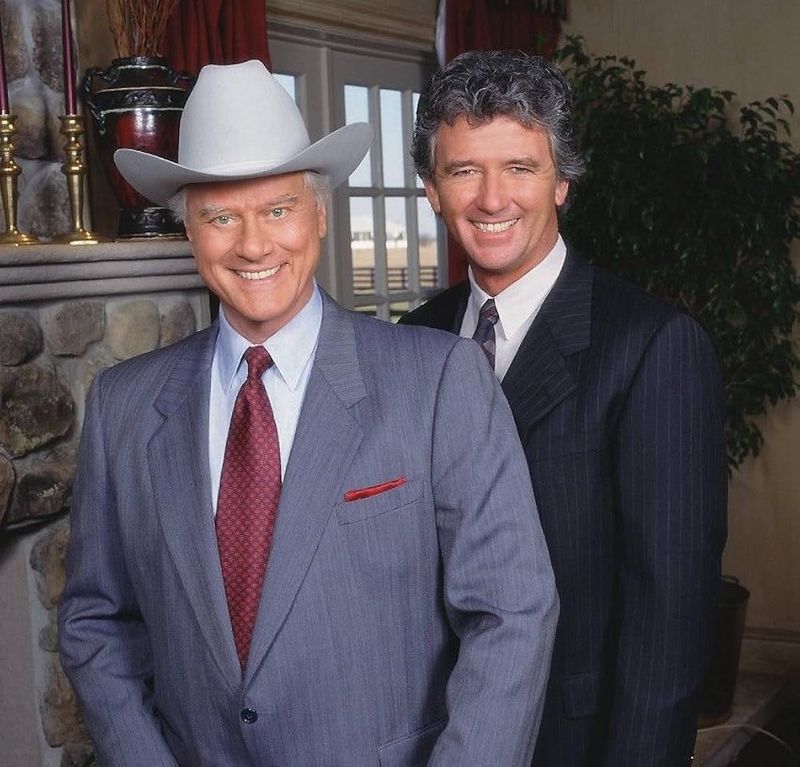
In the summer of 1980, the world wanted to know one thing: who shot J.R. Ewing? The cliffhanger became a cultural phenomenon, dominating headlines, talk shows, and even office water cooler chatter.
When the reveal finally aired, over 80 million viewers tuned in—an unheard-of number for its time. The storyline not only kept audiences hooked but also set the standard for modern cliffhangers.
But not everyone was impressed. Some critics argued it cheapened storytelling, reducing character depth to a marketing gimmick. Still, the outrage didn’t stop it from becoming one of the most iconic TV moments ever, showing networks just how powerful a well-placed “to be continued” could be.
4. Lost – The Series Finale (2010)

When Lost ended, fans expected answers. Instead, they got even more questions. The finale leaned heavily into emotional closure and symbolism, leaving major mysteries unresolved.
Many longtime viewers felt betrayed, especially after investing six years in decoding clues and unraveling theories. Social media and forums erupted with disappointment, while others defended the ending as a moving character-driven conclusion.
Love or loathe it, the finale remains one of the most talked-about in TV history. It highlighted the risks of building a mystery-based show without a clear roadmap. If nothing else, Lost taught fans and creators that sometimes, the journey matters more than the destination—even if the destination makes you want to throw your remote.
5. Breaking Bad – “Ozymandias” (Season 5)
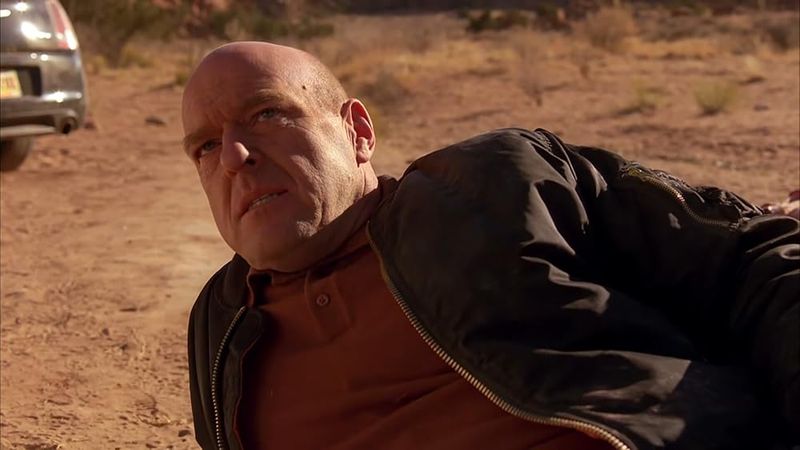
The episode that broke hearts and raised pulses, “Ozymandias” marked the true collapse of Walter White’s empire. Hank’s death was brutal, Walt’s lies unraveled, and everything fans thought they knew about the characters shattered.
Viewers were stunned by the relentless pace and devastating turns. While critics hailed it as a masterpiece of television, many fans admitted they struggled to watch such a beloved character’s downfall hit so hard.
The controversy wasn’t about the quality—it was about the emotional toll. Rarely had TV delivered an episode so universally praised yet so gut-wrenching to experience. “Ozymandias” proved that storytelling brilliance can hurt just as much as it impresses.
6. Friends – Ross Says the Wrong Name at the Altar
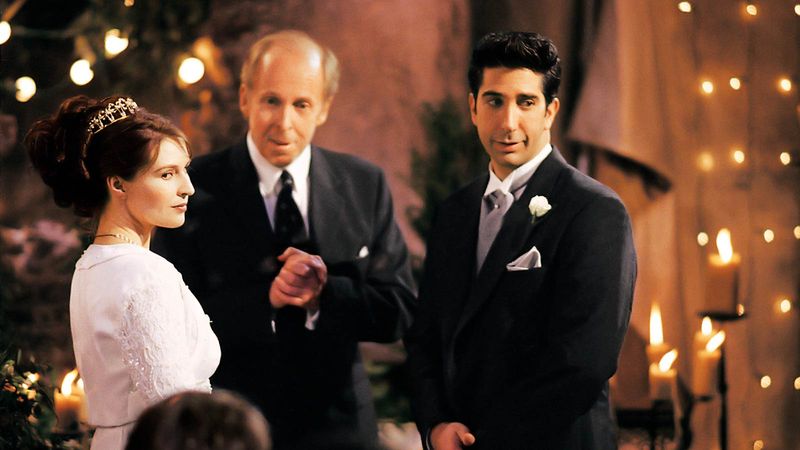
Everyone expected Ross and Emily’s wedding to be awkward—but no one expected him to say “Rachel” at the altar. The shocking slip instantly became one of the most memorable TV wedding moments ever.
Fans were split between outrage and delight. Team Rachel viewers saw it as proof of their destined love, while others thought Ross’s blunder made him irredeemable. The storyline sparked endless debates about love triangles, loyalty, and whether Ross was truly the worst boyfriend in TV history.
Decades later, this scene is still brought up whenever anyone argues about Friends. It may have been a sitcom, but this moment was pure drama at its messiest.
7. The Walking Dead – Glenn and Abraham’s Deaths (Season 7 Premiere)
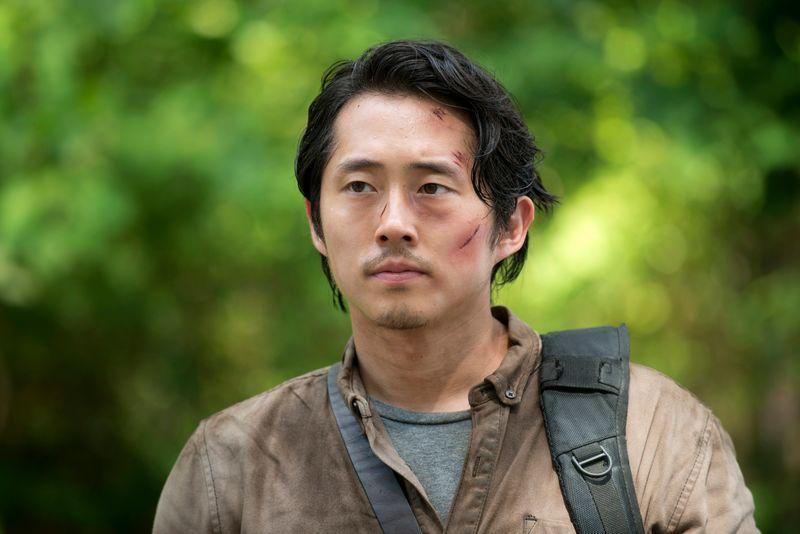
Few shows sparked as much outrage as The Walking Dead’s Season 7 premiere. Fans knew someone was going to die at Negan’s hands, but the brutal, drawn-out bludgeoning of Glenn and Abraham was almost too much to stomach.
The graphic violence left many horrified, with critics questioning whether the show had crossed the line into gratuitous gore. Some fans stopped watching entirely, saying the shock factor had replaced good storytelling.
Still, others defended it as staying true to the comics. Whether you see it as bold or exploitative, the episode is remembered as the moment the series lost part of its audience—yet also secured its place in TV history.
8. Married… with Children – Peggy’s Pregnancy Fake-Out
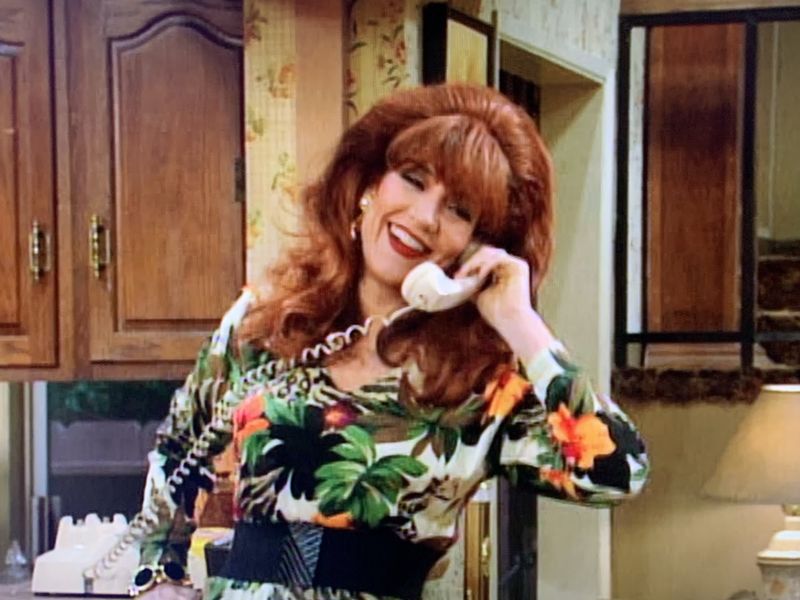
This sitcom thrived on controversy, but the pregnancy fake-out storyline took things too far for some viewers. Fans were led to believe Peggy Bundy was expecting, only for the show to later dismiss it as a dream sequence.
Critics accused the show of making light of sensitive issues, while audiences were divided between laughter and discomfort. At the time, the idea of poking fun at something as serious as pregnancy wasn’t exactly family-friendly comedy.
The backlash didn’t stop Married… with Children from continuing its outrageous run, but the storyline is remembered as one of its most eyebrow-raising. It proved that shock value could be both a blessing and a curse for sitcom success.
9. NYPD Blue – First Use of Nudity on Network TV
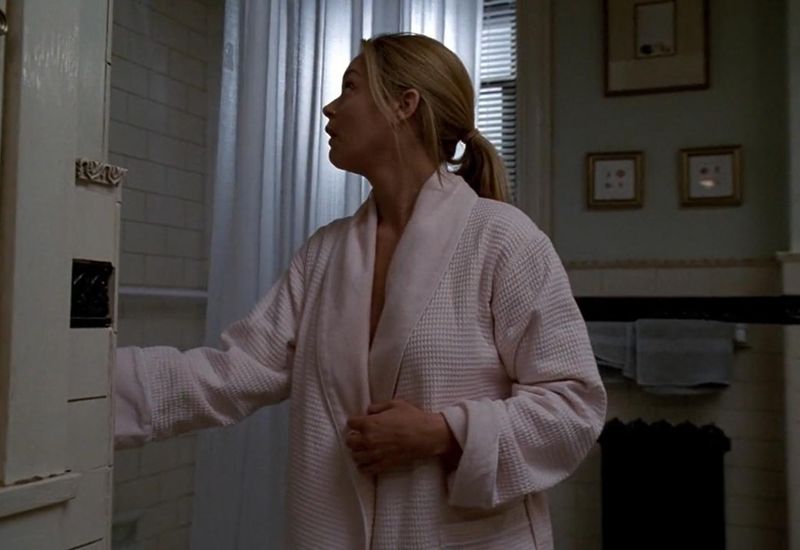
Primetime audiences weren’t used to seeing nudity on network television, but NYPD Blue decided to push the envelope. The introduction of partial nudity and more explicit language shocked conservative viewers.
The controversy was immediate, with advertisers pulling out and watchdog groups demanding boycotts. Yet the show also drew record ratings, proving that pushing boundaries sometimes pays off.
In retrospect, the uproar feels almost quaint, but in the early ’90s it was a scandal. This episode changed what network TV could get away with, paving the way for shows that weren’t afraid to embrace realism—even if it came at the cost of traditional sensibilities.
10. I Love Lucy – Lucy’s Pregnancy (1952)
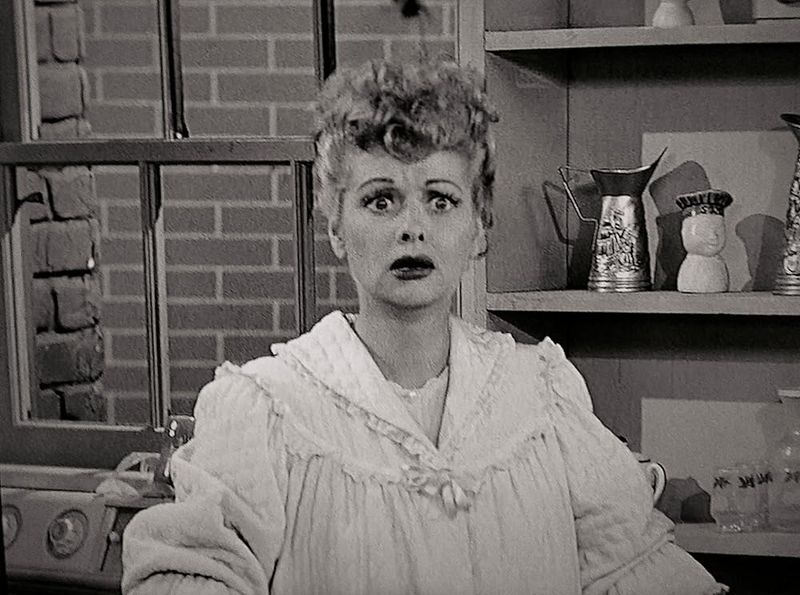
When Lucille Ball’s real-life pregnancy had to be written into the show, it caused a stir. The word “pregnant” was considered too scandalous for television, so CBS forced the writers to use “expecting” instead.
Despite the censorship, the episodes became some of the most beloved in TV history. Audiences tuned in by the millions to see Lucy’s comedic take on motherhood, even as critics debated whether it was appropriate to show.
The controversy reflected a different time in television, when even hinting at real-life topics could be taboo. Looking back, it seems almost absurd, but it highlights just how far TV has come in tackling everyday realities.
11. South Park – “Trapped in the Closet” (Scientology Episode)
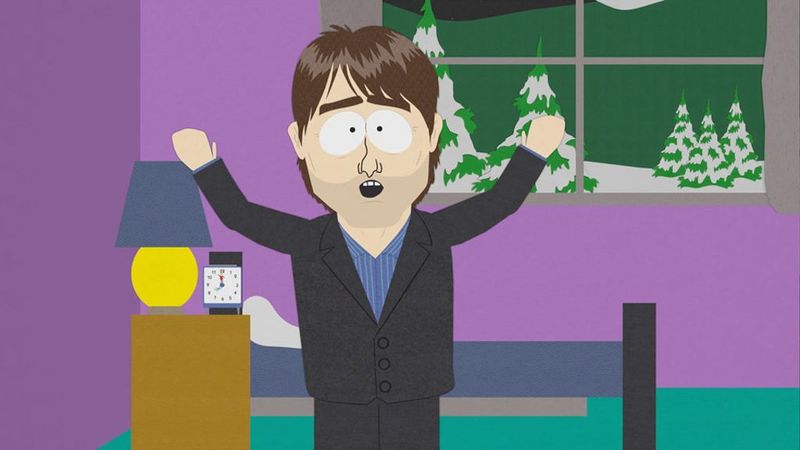
It’s hard to shock anyone with South Park, but this episode did exactly that. By mocking Scientology—and Tom Cruise specifically—the show sparked a media firestorm and threats of lawsuits.
The episode famously led to actor Isaac Hayes leaving the show, citing its attack on religion as a step too far. Fans, however, saw it as classic South Park: fearless, biting, and unapologetically offensive.
Whether you consider it brave satire or reckless provocation, the episode remains one of the boldest moments in animation history. It proved that even in comedy, taking on powerful institutions can cause very real fallout.
12. Family Guy – “Partial Terms of Endearment” (Abortion Episode)
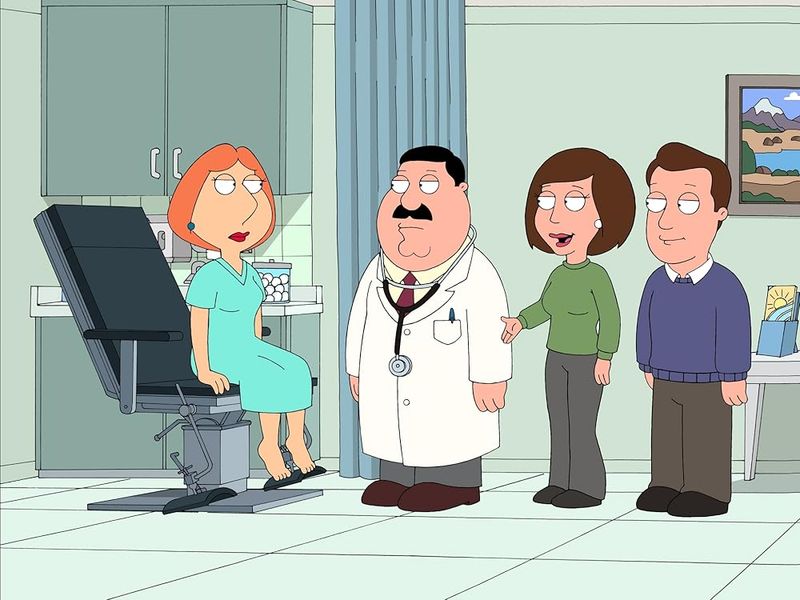
This unaired episode of Family Guy centered around abortion, a topic considered far too hot for network television. While the episode eventually surfaced online and on DVD, it was banned from airing in the U.S.
Fans debated whether the censorship was justified. Some believed Family Guy should be allowed to tackle taboo topics with its trademark dark humor, while others thought the show was deliberately pushing too far for shock value.
Regardless, the controversy turned the episode into legend. Even without airing, it became one of the most infamous moments in TV history—proving that sometimes what you don’t see causes the loudest reactions.
13. 13 Reasons Why – Hannah’s Suicide Scene

Netflix’s 13 Reasons Why became a cultural flashpoint with its graphic depiction of Hannah’s suicide. Mental health experts, parents, and educators criticized the scene for glamorizing or even encouraging self-harm.
The backlash grew so intense that Netflix eventually edited the scene to be less graphic. But by then, the damage was done, and the debate about responsibility in storytelling raged on.
Fans of the show argued it shed necessary light on difficult topics, while critics insisted it crossed an ethical line. The episode left lasting questions about whether entertainment should ever prioritize realism over viewer safety.
14. Seinfeld – Finale in Jail
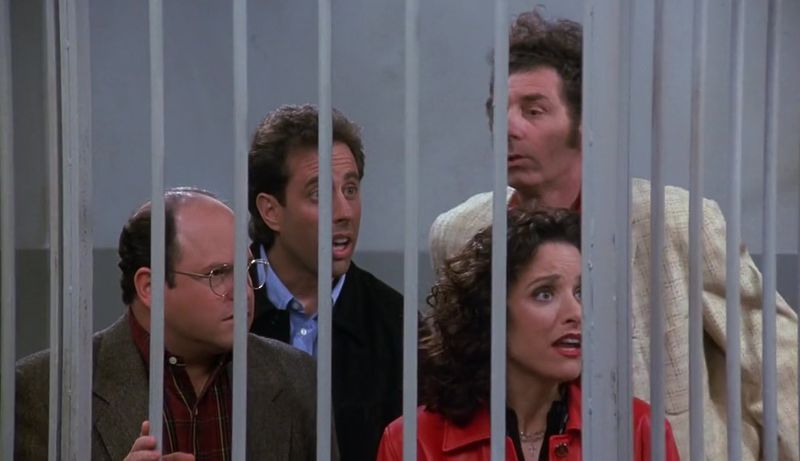
After nine seasons of laughs, fans expected a legendary send-off. Instead, they got the entire cast behind bars for their selfish antics, ending the show on a sour note for many.
The backlash was immediate. Viewers felt it was mean-spirited, unsatisfying, and unworthy of one of the greatest sitcoms of all time. Even Jerry Seinfeld himself later admitted the finale might not have been the best choice.
Still, the episode remains a part of TV history. It may not have pleased everyone, but it perfectly captured the show’s ethos: no hugs, no lessons, and no apologies.
15. M*A*S*H – Colonel Blake’s Death (1975)
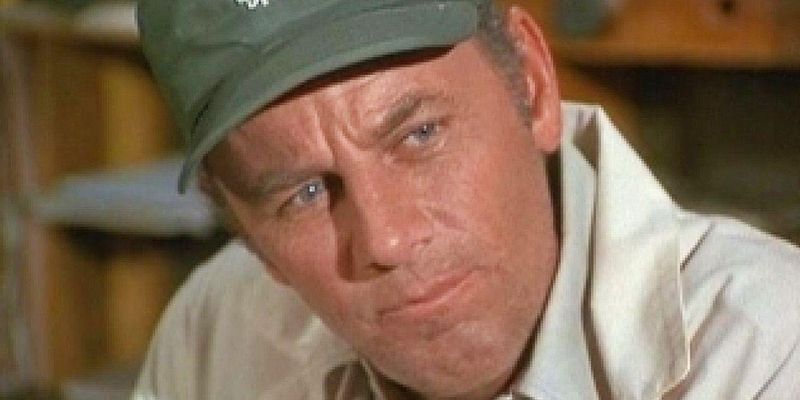
Few sitcom deaths shocked audiences like Colonel Henry Blake’s sudden exit. After a heartfelt farewell, viewers learned via a devastating twist that his plane had been shot down, killing him off-screen.
The decision stunned fans and angered many who felt blindsided. At the time, sitcoms rarely killed off main characters, especially in such a grim fashion. Critics accused the show of being too harsh, but others applauded its realism and bravery.
Looking back, it stands as one of the most daring moments in television. Colonel Blake’s death proved sitcoms could break hearts just as effectively as dramas—and that sometimes, laughter and tragedy go hand in hand.

Comments
Loading…